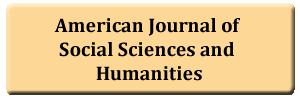Challenges Encountered in Implementing NGOs’ Gender Parity Strategies in Secondary Schools of Kibera Informal Settlements
DOI:
https://doi.org/10.20448/804.3.1.35.43Keywords:
Challenges, Gender parity and strategies.Abstract
The phenomenon of gender disparities gap at the secondary education level in Kenya presents challenges of achieving Sustainable Development Goals. By these goals, elimination of gender disparities in education is to be through the efforts of educational partners including Governments, Agencies, and Non-Governmental Organizations (NGOs) among others. The purpose of this study was to establish challenges in implementing NGO’s gender parity strategies (GPS) in informal settlement secondary schools of Kibera, Kenya. The study was guided by Adams Stacy's equity theory and Herzberg's two-factor theory. The study utilized a mixed methods design. The study was carried out in the Kibera informal settlement of Nairobi County. The study targeted secondary schools managed by NGOs. Purposive sampling was utilized to select NGOs' mixed secondary schools while stratified and simple random sampling was used to select the respondents. Quantitative data was collected by use of questionnaire while qualitative data was gathered through interviews. Data analysis techniques included frequencies and percentages and qualitative comprised of categorization of themes. Data was presented in form of tables, charts, figures, and percentages. The study established that the challenges encountered in the implementation of genders parity strategies include: Lack of training for leaders on gender parity strategies; inadequate school facilities and child labour among others. This study recommended that the Kenyan government strengthens the affirmative action in the admission of girls into secondary schools and public universities and address poverty as a major cause of gender disparity in secondary education in informal settlements.



